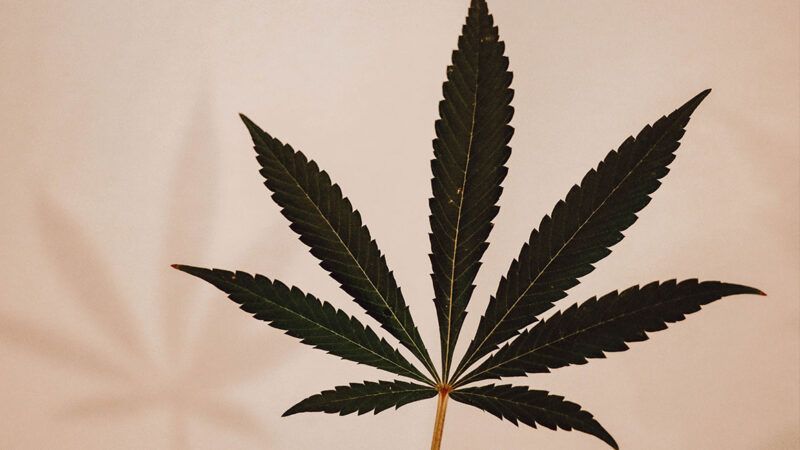Are Democrats Serious About Legalizing Marijuana?
Democrats need to decide whether they want to legalize marijuana or just want credit for seeming to try.

The House of Representatives made history last December by approving a bill that would have repealed the federal ban on marijuana. Senate Democrats made history again this summer by unveiling legislation that would do the same thing. But both bills are chock-full of unnecessarily contentious provisions that make you wonder whether Democrats are serious about ending the war on weed.
The Respect State Marijuana Laws Act, which former Rep. Dana Rohrabacher (R–Calif.) first introduced in 2013, consisted of a single sentence that would have made the federal marijuana ban inapplicable to people acting in compliance with state law. A bill that simply removed cannabis from the federal schedules of controlled substances would be similarly brief, even allowing for conforming amendments.
By contrast, the Marijuana Opportunity Reinvestment and Expungement (MORE) Act, which passed the House last year with support from just five Republicans and never had a chance in the GOP-controlled Senate, was 87 pages long. It called for new taxes, spending programs, and regulations that were apt to alienate Republicans who might otherwise be inclined to resolve the untenable conflict between federal pot prohibition and state laws that allow medical or recreational use.
The Cannabis Administration and Opportunity Act, which Senate Majority Leader Chuck Schumer (D–N.Y.) presented in draft form on July 14, doubles down on that approach. It is nearly twice as long as the MORE Act.
Under Schumer's bill, state-licensed marijuana businesses, which already are regulated by state and local governments, would also be supervised by the Food and Drug Administration, the Treasury Department's Alcohol and Tobacco Tax and Trade Bureau, and the Justice Department's Bureau of Alcohol, Tobacco, Firearms, and Explosives. The bill envisions detailed rules dealing with production, storage, transportation, packaging, labeling, advertising, and sales. It would establish a minimum national purchase age of 21, meaning states would not be free to set a lower threshold.
The bill would impose a federal excise tax on marijuana starting at 10 percent and rising to 25 percent by the fifth year, which would be in addition to frequently hefty state and local taxes. It would spend the resulting revenue on three new grant programs aimed at helping "individuals adversely impacted by the War on Drugs" as well as "socially and economically disadvantaged individuals."
Politico called Schumer's bill a "long-shot bid for legal weed," and it is not hard to see why. His overly prescriptive and burdensome proposal makes an already iffy effort even more quixotic. Democrats need to decide whether they want to legalize marijuana or just want credit for seeming to try.


Show Comments (55)